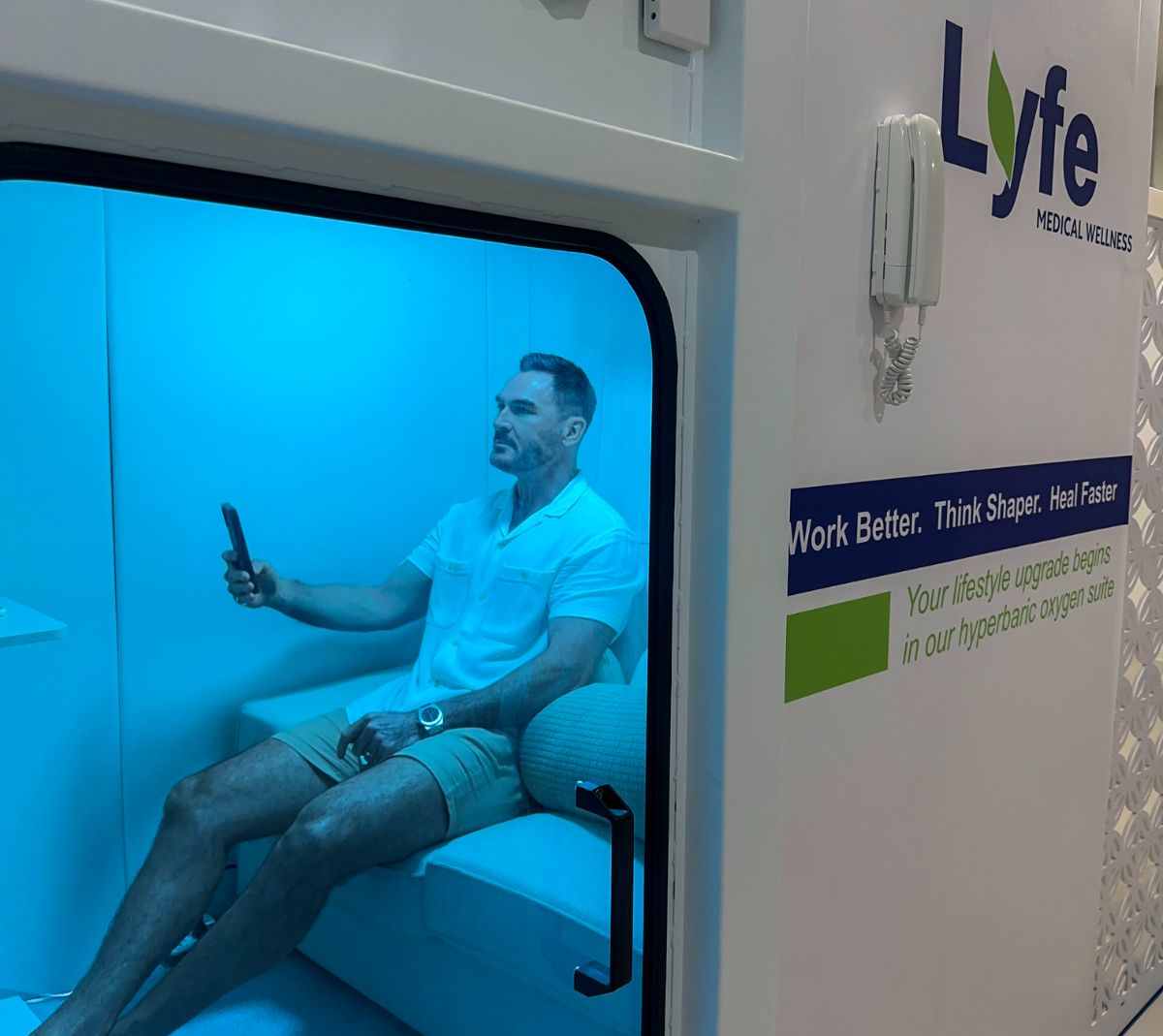fter an intense and invigorating workout or a tough day of physical activities and exercise, you can expect your muscles to feel sore and weak for the next few days. Rest and recovery are an important part of any workout regimen because you need to allow your muscles time to heal and repair themselves. If you skip the recovery process, you risk injuries and additional complications that can impede your athletic progress and potential. While rest is critical, your nutrition is an equally important component of your recovery as you need essential vitamins and minerals to repair damaged muscle tissues and replenish your energy stores.
But which essential micronutrients do you need for your recovery? And how can you ensure that you’re getting the right nutrition for your recovery? In this article, we will explore the key vitamins and minerals that can support muscle recovery the most, their benefits, and how you can easily incorporate them into your daily routine.
Why is Muscle Recovery Important?
When you participate in strenuous physical activities or compete in athletic events, your muscles endure fascial tears and damage on the microscopic level. Don’t worry: these tears are natural and are necessary for building muscles. However, these fascial tissue tears often lead to soreness partially due to lactic acid build-up, and your muscles will be strained and fatigued by your physical activities.
Giving your muscles enough time to recover is essential for repairing these tissues. By resting and avoiding strenuous activity for a handful of days, you’ll give your muscles enough time to repair themselves which helps enhance their functionality, reduce discomfort, and minimize your risk of injury. Furthermore, the recovery process gives your body enough time to replenish energy stores that were expended during your workout(s) and alleviate any spots of inflammation that may negatively impact your muscle growth.
How Your Nutrition Influences Your Muscle Recovery
As previously noted, it’s a good idea to give your muscles 1-3 days to fully recover after a moderate-to-high-intensity workout. This timeframe is especially important if you are restarting your exercise routines after taking an extended break, as your muscles are likely not used to the physical activities. That said, your rest is just one piece of the puzzle.
Your diet plays a crucial role in aiding your muscle recovery because your body needs fuel to restore itself and support your muscle development. Just as your brain and your organs need calories and micronutrients to run efficiently, your muscles need nutritional support to repair themselves and build new muscle fibers.
Protein is the most important macronutrient to focus on for muscle growth, development, and recovery. Without sufficient protein intake, your muscles won’t have enough sustenance to rebuild themselves. For proper muscle recovery, the recommended protein intake is typically around 0.8 to 1 gram of protein per kilogram of body weight.
Optimize Your Nutrition: Which Vitamins Are Needed for Your Muscle Recovery?
Whether you’re training for a marathon, attempting to build muscle mass, or just want to stay healthy, it’s important to integrate the following essential vitamins and minerals into your diet for your muscle recovery and growth.
1. Vitamin D
Often referred to as the “sunshine vitamin,” vitamin D aids in calcium absorption, which helps strengthen bones and improves muscle function. Research has shown that when vitamin D levels are low, the body can’t properly absorb calcium, and that increases the risk of bone fractures, muscle pain, and muscle weakness. As such, vitamin D is a key element in muscle recovery, and it additionally helps reduce inflammation and supports muscular tissue repair.
You can find great amounts of vitamin D in many foods like salmon and mackerel, egg yolks, white beans, mushrooms, and leafy greens such as spinach, kale, and collard greens. You can additionally spur the development of vitamin D within the body by getting enough exposure to sunlight each day. As your skin absorbs ultraviolet rays from the sun, your body converts them into vitamin D3, which helps create the active form of vitamin D in your body.
2. Vitamin C
Vitamin C is widely known for its ability to enhance the immune system’s functionality, but did you know that it also plays a role in aiding muscle recovery and alleviating muscle soreness? This is primarily due to its potent antioxidant effects, which assist your muscle cells in the healing process by eliminating free radical damage. In addition, vitamin C has been shown to support collagen production, which is a key protein that provides structural support to muscles, tendons, and ligaments.
To ensure you get an adequate intake of vitamin C for optimal muscle recovery, include foods such as oranges, bell peppers, broccoli, strawberries, and other vitamin C-rich foods into your diet.
3. Vitamin E
When it comes to onset muscle soreness and your athletic recovery, vitamin E offers great support for you due to its antioxidant properties. Throughout each day, free radicals can build up in your body because of exposure to everyday pollutants and toxins. These free radicals can damage many cells in the body, including your muscular tissues. Antioxidants help prevent and address that damage in a healthy way, allowing your muscles to heal properly.
Some excellent food sources of vitamin E include almonds, hazelnuts, spinach, and sunflower seeds. These foods not only support muscle recovery but also offer additional benefits such as improved skin health and proteins for muscle growth.
4. Vitamin A
Another essential micronutrient for your overall health and wellness, vitamin A helps reduce inflammation in the muscles, allowing for faster healing and decreased muscle soreness. Similarly to vitamins E and C, vitamin A offers antioxidant properties to protect muscles from the damaging effects of free radicals.
Furthermore, vitamin A is essential for proper protein synthesis too. The more protein that you take into your system for muscle growth, the more vitamin A you need to take in too. They share a mutual purpose for your muscle development, so make sure you get enough of this macronutrient and micronutrient in the hours and days after your workout.
Carrots, fatty fish, and eggs are terrific sources of vitamin A and can be easily integrated into just about any diet.
5. B Vitamins
B-complex vitamins serve many essential roles in the human body, from supporting healthy brain function to breaking down carbohydrates, and more. In addition, many B vitamins are important for muscle recovery because they serve and support processes like cellular repair, energy metabolism, and protein synthesis.
For instance, vitamin B12 stands out because it supports the production of red blood cells, which transport oxygen to cells and tissues. By providing increased oxygen to your affected muscle tissues, the healing process will be greatly expedited for your cells.
Vitamin B6 is another important B vitamin for your muscles because it facilitates the metabolism of amino acids, which are the building blocks of protein. This macronutrient is critical for muscle growth and development because it repairs damaged muscle tissues and adds more fascial fibers.
In general, it’s best to obtain the complete B vitamin complex to maximize these advantages. Seek out foods like chicken, salmon, chickpeas, bananas, dairy products, and fortified cereals for B vitamins.
6. Vitamin K
Vitamin K is an often-overlooked micronutrient, but it is nevertheless important for your overall health and wellness. Most people know that vitamin K is crucial for its role in blood clotting and overall bone health, but it also provides many benefits for your muscle strength too.
In muscles, vitamin K has been shown to be closely associated with increased satellite cell proliferation and migration. These satellite cells act as stem cells deep within the membrane of your muscle fibers, and they are critical for the development of skeletal muscles. As such, vitamin K helps spur activity within those satellite cells for increased muscle growth. In addition, vitamin K has been shown to play a key role in energy metabolism, which is necessary for your muscles to recharge and restore themselves.
You can find vitamin K in many leafy greens such as kale, spinach, and broccoli alongside other vegetables like brussels sprouts, asparagus, and prunes.
7. Branched-Chain Amino Acids (BCAAs)
BCAAs are essential amino acids that are the building blocks of protein in the body and there are three main ones – valine, leucine, and isoleucine. They get the name of branched-chain amino acids because they have a unique molecular structure that includes, you guessed it, branches.
These amino acids offer a wealth of benefits for your muscular health and functionality because many studies have shown they help increase muscle growth, reduce muscle soreness, alleviate exercise fatigue, and prevent the breakdown of your muscles. BCAAs are particularly effective in stimulating muscle protein synthesis, which is the process by which muscles repair and grow.
BCAAs can be obtained from dietary sources, such as meat, dairy, and legumes, and workout supplements.
8. Creatine
Creatine is widely discussed within the fitness industry because it is a natural source of energy that helps your skeletal muscles flex. It’s an amino acid that is stored within your muscles where it is used for energy, which makes it an essential nutrient for muscle function during intense physical activity. Many workout enthusiasts and professional athletes use creatine supplements to gain a quick burst of energy and increase their strength for enhanced athletic performance. You’ll primarily see bodybuilders, wrestlers, and American football athletes leveraging creatine for their muscle development.
Taking creatine supplements helps increase the availability of adenosine triphosphate (ATP), the energy currency of the cells. This leads to improved muscle performance during workouts and exercise and a continuous energy supply for your muscles. This energy production carries over into your muscular recovery and helps expedite it.
9. Omega-3 Fatty Acids
Across the entire health and wellness landscape, omega-3 fatty acids are widely recognized for their anti-inflammatory properties. Omega-3 supplements are commonly billed as a solution to chronic inflammation issues and inflammation-based conditions. However, evidence has shown that these fatty acids can help alleviate muscle soreness, aid in muscle growth, and promote cardiovascular health. This may be due to the fact that omega-3 fatty acids can improve nerve signaling, which helps strengthen muscle contractors, reduces the risk of muscle loss, and aids in the production of hormones that are needed for new muscle fibers.
You can find an abundance of omega-3 fatty acids in fatty fish like salmon and mackerel, alongside other foods like eggs, nuts, and seeds. If you can’t squeeze enough fish into your weekly diet, fish oil supplements offer a convenient way to ensure an adequate intake of omega-3s.
10. Magnesium
During muscle contractions, magnesium is necessary for the activation of muscle fibers. This micronutrient helps regulate calcium levels, which is essential for proper muscle function and energy production, and it also helps promote muscle relaxation after contractions, helping prevent cramps and promoting recovery.
Furthermore, magnesium is involved in the recovery of blood glucose levels after exercise. Glucose is essential for your recovery because it helps replenish energy stores in your muscle cells and reduces muscle soreness.
The recommended daily allowance (RDA) for magnesium varies based on age and gender. For adult males, the RDA ranges from 400-420 mg, while for adult females, it ranges from 310-320 mg. You can find a lot of magnesium in nuts, seeds, whole grains, and dark leafy greens.
When and How to Take Muscle Recovery Supplements
Regardless of your health and wellness goals, muscle recovery supplements are vital to expedite the healing of muscle tissues and injuries. To optimize their effectiveness, understanding when and how to use these supplements is essential.
Across the athletic supplement market, you’ll find two primary categories: pre-workout and post-workout supplements.
Pre-workout supplements are specifically designed to boost energy, concentration, and endurance before physical activities. They typically contain ingredients like caffeine, creatine, and branched-chain amino acids (BCAAs), which all help give your muscles the extra “oomph” you need. It’s best to take pre-workouts approximately 30-60 minutes before engaging in physical activities to allow for proper absorption and utilization of the nutrients.
To be clear, pre-workouts mainly support your performance during physical activity and provide minimal nutritional support for recovery. Post-workout supplements, on the other hand, are specially formulated to aid in muscle repair, reduce soreness, and expedite recovery.
Post-workouts commonly include ingredients such as protein, carbohydrates, and essential amino acids, but they often contain other essential micronutrients discussed here like magnesium, b-vitamins, and more. It’s recommended to consume a post-workout supplement within 30-60 minutes after completing physical activity to initiate the muscle recovery process.
When using any muscle recovery supplements, it’s wise to follow the recommended dosage guidelines. Excessive intake of certain supplements or micronutrients, such as magnesium, may result in adverse or uncomfortable side effects. Always read the provided instructions before taking any type of workout supplement.
Author’s Byline: Dr. Jeffrey McWhorter, D.C., M.S.R., A.R.T. is the founder, owner, and operator of McWhorter Chiropractic and Neurological Rehab (CNR). After first receiving his Bachelor of Science degree in Zoology from Miami University, Dr. McWhorter went on to receive both his Doctorate of Chiropractic and Masters of Sports Rehabilitation from Logan University in Chesterfield, Missouri. After graduating and moving to the Denver metro area, Dr. McWhorter has quickly become an innovative voice and an inspiring leader as a top Centennial chiropractor.










